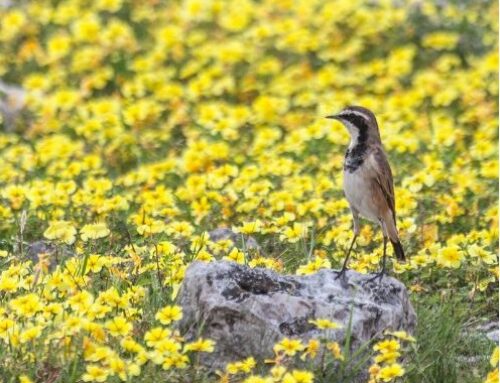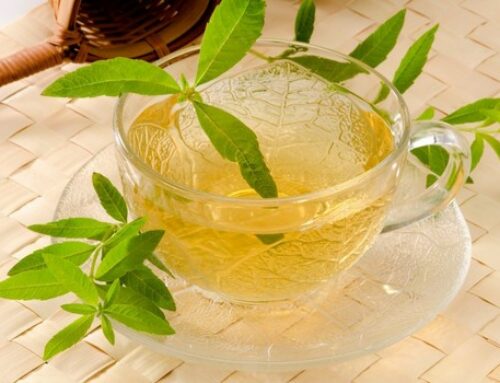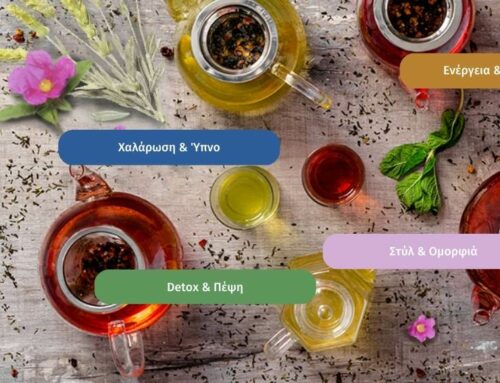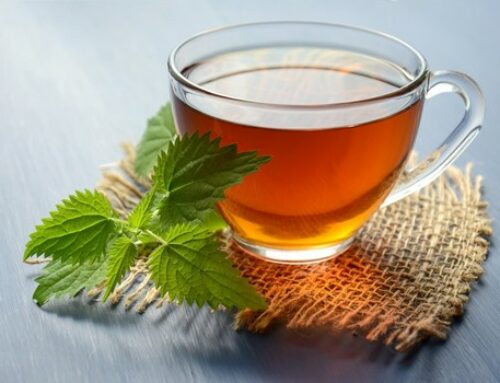Tribulus terrestris, commonly known as Gokharu or puncture vine, is a well-patronized medicinal herb that has been used in the traditional Chinese and Ayurvedic systems of medicine since ancient times. History also tells us that the ancient Greek herbalists used this plant to treat many sexual dysfunctions, and this treatment is still in practice [1]. It belongs to the family Zygophyllaceae, and grows in the dry and warm climates of the Mediterranean particulalry in Greece and subtropical areas of the world. Due to its remarkable curative efficacy, even modern herbalists utilize it as a sole or a prime component of their herbal formulations to treat eczema, chest pain, abdominal discomfort, diabetes, sexual dysfunctions, infertility, and numerous other conditions.
The plant possesses diuretic, anti-urolithic, anti-inflammatory, anti-diabetic, analgesic, antibacterial, antispasmodic, and various other therapeutic properties [2]. In the past few decades, a lot of scientific research has been carried out to prove the biological effects of Tribulus terrestris, and the pharmacological basis behind it. Below is a brief evidence-based review of its beneficial properties and uses.
Beneficial Effects of Tribulus Terrestris
The various beneficial effects of Tribulus terrestris along with their scientific basis is described below.
Diuretic
Tribulus terrestris has diuretic effect – means, it helps the body to get rid of salt and water. This lowers blood pressure, and helps to treat hypertension. In a study conducted on rats, it was observed that the extract obtained from the leaves and fruit of this plant has even higher diuretic activity than that of furosemide, a commonly used diuretic medication for the treatment of hypertension [3]. This property is rendered by the large amounts of nitrates, essential oils, and potassium salts present in its extract.
Anti-urolithic
The herbal extract also provides a dose-dependent protection against the formation of stones or calculi in urinary tract. Besides, it also keeps the serum urea levels from rising; thus, lowering the risks of urolithiasis [4]. Recently, a novel antilithic protein has been purified from the plant, which is claimed to possess high cytoprotective potency [5].
Aphrodisiac
The term aphrodisiac is used for those substances which increase the sexual pleasure, arousal, performance and desire. A recent study has demonstrated that chronic administration of aqueous leaf extract of Tribulus terrestris can be used as a sexual enhancer (aphrodisiac) in Greece and Cyprus called natural “Viagra”. It improves penile erection; decreases ejaculation latency; and raises the serum testosterone levels, significantly [6]. Similarly, a randomized double-blind study observed significant improvement in females suffering from hypoactive sexual desire disorder, who were given this extract, without any side effects [7].
Anti-diabetic
Experts have found that Tribulus terrestris contain organic compounds, known as saponins, which impart hypoglycemic effect i.e. reduce the levels of glucose in blood [8]. It makes the plant effective against diabetes.
Antihyperlipidemic
It, also, has antihyperlipidemic, or lipid-lowering activity. The fruit extract reduces the blood concentrations of bad cholesterols like LDL, VLDL, triglycerides, etc, and raises the good cholesterol levels (HDL) [9]. By doing so, it can, significantly, decrease the risks of cardiovascular diseases, strokes, and other disorders associated with hyperilipidemia.
Immunomodulator
Animal studies have shown that the plant supplements stimulate both the specific and non-specific immune response of the body. They not only enhance phagocytosis but also boost the production of antibodies and T lymphocytes in the body[10] .
Cardioprotective
The saponins present in Tribulus terrestris protect hearts cells, and are also found to improve cardiac functions following a heart attack [11]. They amplify the protective activity of superoxide dismutase enzyme; reduce the amount of caspase-3; and increase the survival of heart cells by inhibiting myocyte apoptosis [12]. These properties along with the anti-hypertensive effects prove the therapeutic efficacy of the plant against various cardiac disorders like coronary heart disease, myocardial infarction, cerebral arteriosclerosis, and thrombosis.
Antidepressant and anxiolytic
Researchers have isolated a β-carboline alkaloid, harmine, from this herbal plant. Harmine raises the levels of dopamine in the brain by inhibiting the function of monoamine oxidase enzyme[13] . Dopamine, in turn, reduces depression, and plays a key role in the motivation, arousal, and feelings of reward. This verifies the potential effectiveness of Tribulus terrestris in the treatment of anxiety and depression.
Anti-inflammatory
The ethanolic extract of puncture vine possesses anti-inflammatory activity. It inhibits the expression of COX-2 and iNOS enzymes which are responsible for producing mediators of inflammation[14] . It makes this herbal plant an excellent remedy for numerous inflammatory disorders, including skin diseases like eczema, atopic dermatitis, etc.
Antispasmodic
Tribulus terrestris has been used in folk medicine to relieve abdominal discomforts and colic pains. It is, now, scientifically proven that saponins, present in its extract, owe significant antispasmodic activity. They reduce the peristaltic activity, and alleviate the spasms of smooth muscles of the gastrointestinal tract responsible for abdominal pain and discomfort[15] .
Antimicrobial
Many diseases are caused by microbial pathogens like bacteria and fungi. Solid evidence has been found which proves that the methanolic extract of Tribulus terrestris significantly hampers the growth of many gram (+) and gram (-) bacteria, such as Enterococcus faecalis , Staphylococcus aureus , Escherichia coli , and Pseudomonas aeruginos[13] . The same extract has demonstrated strong antifungal effects against common fungi[16] .
Anticancer
Surprisingly, remarkable anticancerous effects of Tribulus terrestris have been reported against various types of cancers. A scientific study has supported its potential usefulness in the treatment of human liver cancer because it was found that the aqueous extract of this plant blocks the cancerous proliferation, and induces apoptosis of hepatic tumor cells [17]. Likewise, the methanolic and saponin extract from its leaves and seeds cause fragmentation of the DNA of breast cancer cells, and cause their apoptosis (cell death) while being non-toxic to the normal cells [18]. Similarly, its saponin extract has shown cytotoxicity against cancerous skin fibroblasts without causing any significant harm to the normal skin cells [19].
Other effects
It is also an excellent analgesic, hepatoprotective, antiheminthic, and levicidal agent.
Uses of Tribulus Terrestris
Due to the beneficial effects mentioned above, the herbal plant can be used to treat numerous medical conditions. These include;
- Cough
- Sore throat
- Abdominal discomforts
- Colic pain
- Sexual problems including erectile dysfunction, premature ejaculation, etc
- Libido
- Diabetes
- Hypertension
- Cardiovascular problems, like angina, myocardial infarction, etc
- Inflammatory skin disorders including atopic dermatitis, psoriasis scabies, etc
- Anxiety and depression
- Arthritis
- Cancer
Conclusion
Discover the ancient secrets of Tribulus Terrestris, a remarkable medicinal herb revered in traditional Chinese, Indian, and Greek medicine for its exceptional healing properties. With the backing of extensive scientific research, this evidence-based review reveals the countless benefits and therapeutic potential of this extraordinary plant.
Explore the Power of Tribulus Terrestris of the Greek Wild Organic Series LelexTea , one of the Top five Premium quality products in the world, and Unlock a world of Health and Wellness
References
- Adaikan PG, Gauthaman K, Prasad RN. History of herbal medicines with an insight on the pharmacological properties of Tribulus terrestris. The aging male. 2001 Jan 1; 4 (3): 163-9.
- Chhatre S, Nesari T, Somani G, Kanchan D, Sathaye S. Phytopharmacological overview of Tribulus terrestris. Pharmacognosy reviews. 2014 Jan; 8 (15): 45.
- Al-Ali M, Wahbi S, Twaij H, Al-Badr A. Tribulus terrestris: preliminary study of its diuretic and contractile effects and comparison with Zea mays. Journal of Ethnopharmacology. 2003 Apr 1; 85 (2-3): 257-60.
- Anand R, Patnaik GK, Kulshreshtha DK, Dhawan BN. Activity of certain fractions of Tribulus terrestris fruits against experimentally induced urolithiasis in rats. Indian journal of experimental biology. 1994 Aug 1; 32 (8): 548-52.
- A novel antilithiatic protein from Tribulus terrestris having cytoprotective potency. Protein and peptide letters. 2012 Aug 1; 19 (8): 812-9.
- Singh S, Nair V, Gupta YK. Evaluation of the aphrodisiac activity of Tribulus terrestris Linn. in sexually sluggish male albino rats. Journal of pharmacology & pharmacotherapeutics. 2012 Jan; 3 (1): 43.
- Akhtari E, Raisi F, Keshavarz M, Hosseini H, Sohrabvand F, Bioos S, Kamalinejad M, Ghobadi A. Tribulus terrestris for treatment of sexual dysfunction in women: randomized double-blind placebo-controlled study. DARU Journal of Pharmaceutical Sciences. 2014 Dec; 22 (1): 1-7.
- Li M, Qu W, Wang Y, Wan H, Tian C. Hypoglycemic effect of saponin from Tribulus terrestris. Zhong yao cai = Zhongyaocai = Journal of Chinese medicinal materials. 2002 Jun 1; 25 (6): 420-2.
- Khan S, Kabir H, Jalees F, Asif M, Naquvi KJ. Antihyperlipidemic potential of fruits of Tribulus terrestris linn. Int J BiomedRes. 2011; 2: 98-101.
- Tilwari A, Shukla NP, Devi PU. Effect of five medicinal plants used in Indian system of medicines on immune function in Wistar rats. African Journal of Biotechnology. 2011; 10 (73): 16637-45.
- Zhang S, Li H, Yang SJ. Tribulosin protects rat hearts from ischemia / reperfusion injury. Acta Pharmacologica Sinica. 2010 Jun; 31 (6): 671-8.
- Deole YS, Chavan SS, Ashok BK, Ravishankar B, Thakar AB, Chandola HM. Evaluation of anti-depressant and anxiolytic activity of Rasayana Ghana Tablet (A compound Ayurvedic formulation) in albino mice. Ayu. 2011 Jul; 32 (3): 375.
- Oh JS, Baik SH, Ahn EK, Jeong W, Hong SS. Anti-inflammatory activity of Tribulus terrestris in RAW264. 7 Cells (54.2).
- Arcasoy HB, Erenmemisoglu A, Tekol Y, Kurucu S, Kartal M. Effect of Tribulus terrestris L. saponin mixture on some smooth muscle preparations: a preliminary study. Bullettino Chimico Pharmaceutico. 1998 Dec 1; 137 (11): 473-5.
- Baburao B, Rajyalakshmi G, Venkatesham A, Kiran G, Shyamsunder A, Gangarao B. Anti-inflammatory and antimicrobial activities of methanolic extract of Tribulus terrestris Linn plant. Int J Chem Sci. 2009 Jan; 7 (3): 1867-72.
- Al-Bayati FA, Al-Mola HF. Antibacterial and antifungal activities of different parts of Tribulus terrestris L. growing in Iraq. Journal of Zhejiang University Science B. 2008 Feb; 9 (2): 154-9.
- Kim HJ, Kim JC, Min JS, Kim MJ, Kim JA, Kor MH, Yoo HS, Ahn JK. Aqueous extract of Tribulus terrestris Linn induces cell growth arrest and apoptosis by down-regulating NF-κB signaling in liver cancer cells. Journal of ethnopharmacology. 2011 Jun 14; 136 (1): 197-203.
- Patel A, Soni A, Siddiqi NJ, Sharma P. An insight into the anticancer mechanism of Tribulus terrestris extracts on human breast cancer cells. 3 Biotech. 2019 Feb 1; 9 (2): 58.
- Neychev VK, Nikolova E, Zhelev N, Mitev VI. Saponins from Tribulus terrestris L. are less toxic for normal human fibroblasts than for many cancer lines: Influence on apoptosis and proliferation. Experimental Biology and Medicine. 2007 Jan; 232 (1): 126-33.






